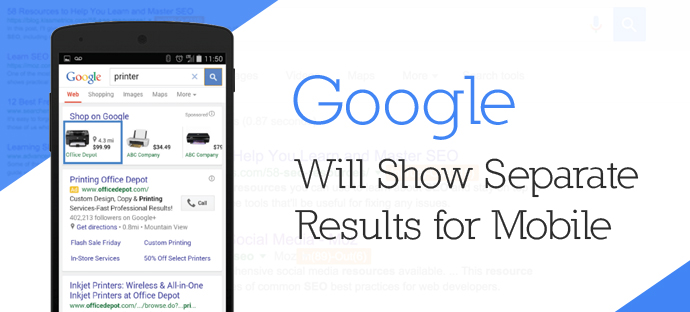In a few months’ time, you might notice getting different sets of search results on a phone and on a computer even if you use the same terms. That’s because Google has decided to start indexing mobile websites separately, according to Search Engine Land. Mountain View has been toying with the idea since last year — the continued growth in the number of mobile users might have finally convinced the tech titan to push through with it. Gary Illyes, the company’s trends analyst, has revealed the info at digital marketing conference Pubcon, where he also assured people that Google will still have a desktop index. It just won’t be as fresh and as up to date as the one for mobile.
The big G launched several other features in the past meant to encourage website owners to tweak their domains for phone users. Last year, it made sure its mobile search results prioritize websites optimized for phones. More recently, it started marking Accelerated Mobile Pages (AMP) on the results page, so people can choose the website with the fastest loading time.
It’s unclear exactly how the mobile index will work. For example, since the mobile index is the “primary” index, will it really not be used for any desktop queries? Will it only contain “mobile-friendly” content? How out-of-date will the desktop index be? Desktop usage is now a minority of Google queries but still generates substantial usage.
The most substantial change will likely be that by having a mobile index, Google can run its ranking algorithm in a different fashion across “pure” mobile content rather than the current system that extracts data from desktop content to determine mobile rankings.
Read more at: SEL












